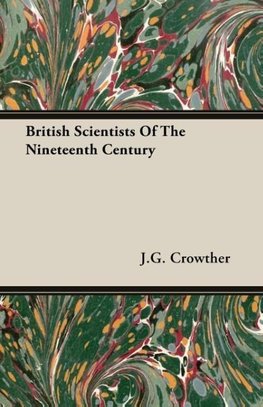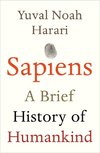
-
 Anglický jazyk
Anglický jazyk
British Scientists Of The Nineteenth Century
Autor: J. G. Crowther
BRITISH SCIENTISTS OF THE NINETEENTH CENTURY J. G. CROWTHER By the same author THE PROGRESS OF SCIENCE THE ABC OF CHEMISTRY AN OUTLINE OF THE UNIVERSE SCIENCE FOR YOU SHORT STORIES IN SCIENCE OSIRIS AND THE ATOM SCIENCE IN SOVIET RUSSIA INDUSTRY EDUCATION... Viac o knihe
Na objednávku, dodanie 2-4 týždne
37.17 €
bežná cena: 41.30 €
O knihe
BRITISH SCIENTISTS OF THE NINETEENTH CENTURY J. G. CROWTHER By the same author THE PROGRESS OF SCIENCE THE ABC OF CHEMISTRY AN OUTLINE OF THE UNIVERSE SCIENCE FOR YOU SHORT STORIES IN SCIENCE OSIRIS AND THE ATOM SCIENCE IN SOVIET RUSSIA INDUSTRY EDUCATION IN SOVIET RUSSIA CONTENTS INTRODUCTION I. HUMPHRY DAVY, 1778-1829 II. MICHAEL FARADAY, 1791-1867 III. JAMES PRESCOTT JOULE, 1818-1889 IV. WILLIAM THOMSON, 1824-1907 V. JAMES CLERK MAXWELL, 1831-1879 SELECT BIBLIOGRAPHY INDEX PLATES JAMES CLERK MAXWELL Frontispiece FACING PAGE HUMPHRY DAVY, AGED 23 SIR HUMPHRY DAVY MICHAEL FARADAY MICHAEL FARADAY AND HIS WIFE SARAH JAMES PRESCOTT JOULE WILLIAM THOMSON, AGED 22 SIR WILLIAM THOMSON LORD AND LADY KELVIN JAMES CLERK MAXWELL, AGED 6 JAMES CLERK MAXWELL, AGED 10 JAMES CLERK MAXWELL, AGED 10 JAMES CLERK MAXWELL AS A YOUNG MAN INTRODUCTION Scientists of the nineteenth century are appearing in a new perspective as they recede into the past. It is now possible to recognise aspects of their work not wholly visible to their contemporaries. This book was started with the intention of using the new opportunity to discuss some of these aspects. Inspiration was also derived from the instructive essay on The Social and Economic Roots of Newtons Principia communicated by Professor Hessen to the International Congress on the History of Science in 1931. Professor Hessen discussed in a manner not hitherto seen in English literature the relation between Newtons ideas and the social characteristics of his time. The first intention was to include about twenty scientists, but presently it became clear that the more remarkable could not be usefully discussed in short essays. It was also proposed to choose equal numbers of physical, bio logical, and medical scientists. A difficulty then arose. Investigation showed there were very few great British medical scientists in the nineteenth century, and that the number of great biologists was much smaller than the number of great physical scientists, of which Davy, Fara day, Joule, Thomson, and Maxwell appeared to be the most important. These have been chosen as the subjects. Dalton was excluded because he was already mature in the eighteenth century, and Rayleigh because he was too close to the twentieth. The rarity of important British medical scientists in the nineteenth century is noticeable. This may be due to the exclusiveness of the medical profession. They considered medicine an art distinct from science, and conducted their educational colleges apart from the universities. The theory of medicine was taught perfunctorily and the student hurried on to the empirical training in the hos pital. This utilitarian attitude was connected with the nature of the organisation of medical service. The private hospitals and doctors reflected the narrow views, common though not universal, in private institutions. In addition, the sciences of biology, chemistry, and physics were not developed enough to provide easy methods of investigating the complexities of human physiology.
- Vydavateľstvo: Hesperides Press
- Rok vydania: 2006
- Formát: Paperback
- Rozmer: 216 x 140 mm
- Jazyk: Anglický jazyk
- ISBN: 9781406732245






 Ruský jazyk
Ruský jazyk 





